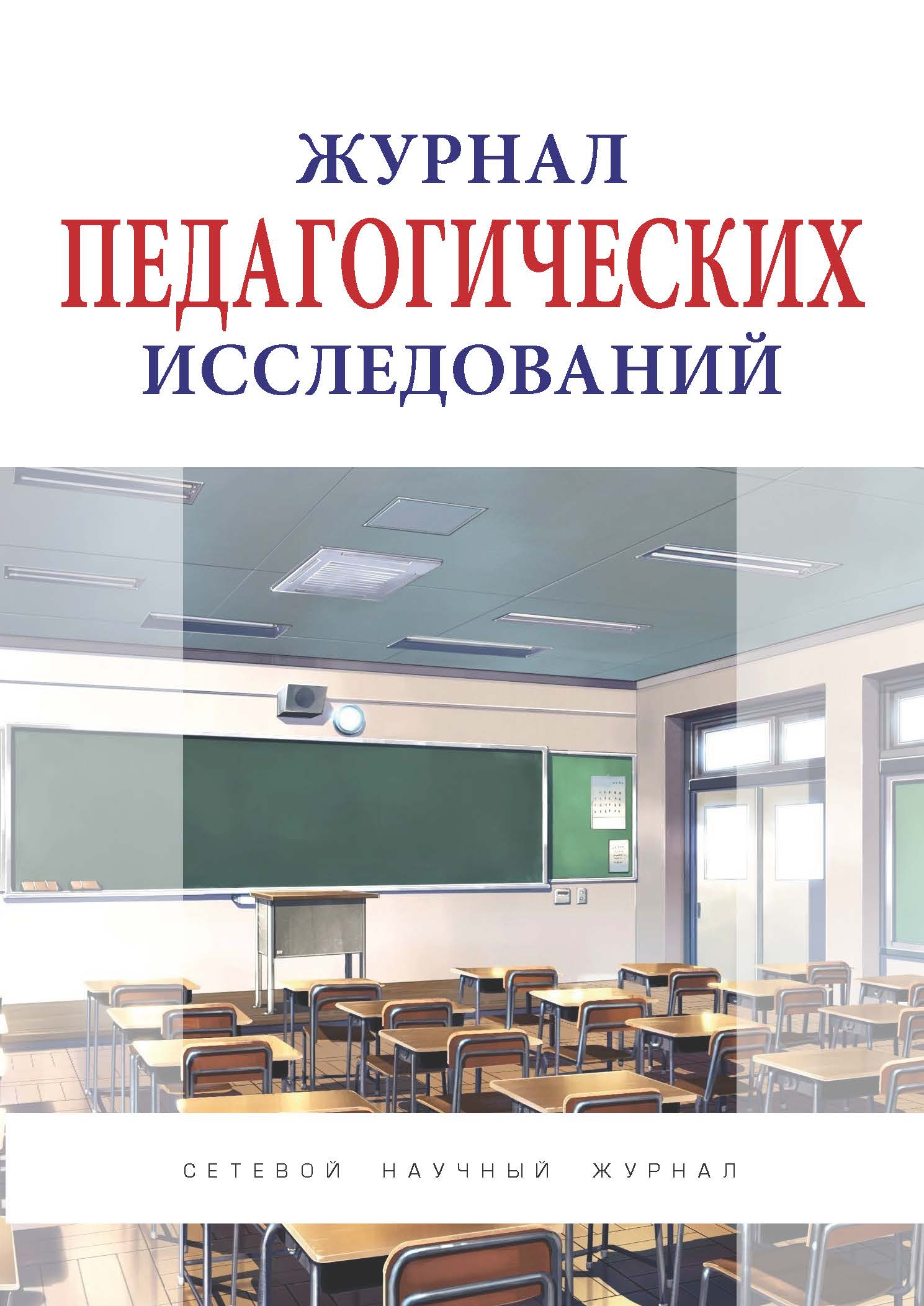from 01.01.2023 until now
St. Petersburg, Russian Federation
The growing competition in the labor market, high demands on the level of training of students by employers � all this is due to the dynamics of economic processes not only in our country, but also in the world as a whole. The article deals with the problem of the formation of supra-professional competencies in the conditions of professional training of a student. The influence of "soft skills" on professional formation and professional realization. The content analysis of the relevance of the possession of "soft skills" by future specialists was carried out in order to have a more holistic understanding of the situation in the Russian economy and to develop strategic decisions in the educational policy of educational institutions in the future. The article analyzes the research conducted in the field of higher education at different levels: international, Russian, local. The methodological basis of the study is the analysis of the assessment of supraprofessional competencies in Russian educational organizations, which was organized by the Presidential Platform of the ANO "Russia - the land of opportunities". The interpretation of the results of research on the assessment and development of supra-professional competencies by students in groups participating in the project is studied. The interpretation of business qualities that were not named as paramount is selectively considered. The purpose of the article is to analyze and generalize the concept of vocational education and the result of sociological research on the assessment of students' supra
soft skills, supra-professional competencies, intellectual and creative potential, professional education, professional development, leadership, emotional intelligence, strategic thinking
1. Goulman, D. Emocional'noe liderstvo: Iskusstvo upravleniya lyud'mi na osnove emocional'nogo intellekta / D. Goulman, R. Boyacis, E. Makki; per. s angl. - 3- izd. - M.: Al'pina Biznes Buks, 2008 –301 s.
2. Zeer E.F. Psihologiya professiy: Uchebnoe posobie dlya studentov vuzov. – 2-e izd., pererab., dop. – M.: Akademicheskiy Proekt; Ekaterinburg: Delovaya kniga, 2003. – 336 s. – («Gaudeamus»). EDN: https://elibrary.ru/QXGPCR
3. Zeer EF., Namyatova I.M., Panova Zh.A. Praktikum po psihologii professional'nogo obrazovaniya: Ucheb. posobie. Ekaterinburg, 2001- 14s.
4. Zeer E.F. Psihologiya lichnostno orientirovannogo professional'nogo obrazovaniya. Ekaterinburg, 2000- 80 s.
5. Mitina L.M. Professional'naya evolyuciya i kar'ernyy rost sovremennogo cheloveka: sistemnyy lichnostno-razvivayuschiy podhod\ Lichnost' professionala : razvitie, obrazovanie, zdorov'e : Sbornik nauchnyh statey. Vypusk 5. Omsk. Kel'ce. Plovdiv. / Otv. red. : E. S. Asmakovec.– Omsk : Izdatel'skiy centr KAN, 2020. – 616 s.
6. Kozyrev V.A., Radionova N.F., Tryapicyna A.P. Podgotovka specialista v oblasti obrazovaniya: kompetentnostnyy podhod. Rossiyskiy gosudarstvennyy pedagogicheskiy universitet im. A.I. Gercena, Nomer: 9 (35) God: 2006. Stranicy: 46-49.
7. Komissarov A. G., Stepashkina E. A., Soboleva O. B., Guzhelya D. Yu., Seleznev P. S. Metodologiya ocenki nadprofessional'nyh kompetenciy v rossiyskih obrazovatel'nyh organizaciyah. Gumanitarnye nauki. Vestnik Finansovogo universiteta. 2022;12(6):53-62. DOI: https://doi.org/10.26794/2226-7867-2022-12-6-53-62; EDN: https://elibrary.ru/GNURCS
8. Pesha A.V. Nadprofessional'nye kompetencii i ih znachenie v stanovlenii specialista//Sovremennye Issledovaniya problem upravleniya kadrovymi resursami: Materialy V Mezhdunarodnoy nauchno-prakticheskoy konferencii. 2020. S. 114-122. EDN: https://elibrary.ru/IYXSUO
9. Myagkov A. Yu. Studenty tehnicheskogo vuza: professional'nye kompetencii i ozhidaniya na rynke truda // Sociologicheskie issledovaniya. 2016. № 6. S. 102-109. EDN: https://elibrary.ru/WBBIEN
10. Issledovanie profilya nadprofessional'nyh kompetenciy, vostrebovannyh veduschimi rabotodatelyami pri prieme na rabotu studentov i vypusknikov universitetov i molodyh specialistov / E. A. Stepashkina, A. K. Suhodoev, D.Yu. Guzhelya; Nacional'nyy issledovatel'skiy universitet «Vysshaya shkola ekonomiki», Institut obrazovaniya. — M.: NIU VShE, 2022. — 32 s.
11. Raickaya L K., Tihonova E.V. Soft skills v predstavlenii prepodavateley i studentov rossiyskih universitetov v kontekste mirovogo opyta // Vestn. RUDN. Ser. Psihologiya i pedagogika. 2018. № 3. S. 350–363. DOI: https://doi.org/10.22363/2313-1683-2018-15-3-350-363; EDN: https://elibrary.ru/YBJIFF
12. Chulanova O.L. Formirovanie, razvitie i kouching emocional'noy kompetentnosti v upravlenii personalom organizacii : mono grafiya / O.L. Chulanova. — Moskva : INFRA-M, 2023. — 217 s.— (Nauchnaya mysl').
13. Ivonina A.I., Chulanova O.L., Davletshina Yu.M. Sovremennye napravleniya teoreticheskih i metodicheskih azrabotok v oblasti upravleniya: rol' soft-skills i hard skills v professional'nom i kar'ernom razvitii sotrudnikov // Internet-zhurnal «NAUKOVEDENIE» Tom 9, №1 (2017)\[Elektronnyy resurs]\URL: http://naukovedenie.ru/PDF/90EVN117.pdf \ (data obrascheniya:23.03.2023). EDN: https://elibrary.ru/YMXPOL
14. Izvestiya. Rabotodateli zayavili o probleme «kadrovogo goloda» v svoih otraslyah\ [Elekronnyy resurs]/ URL: https://iz.ru/1266062/2021-12-20/rabotodateli-zaiavili-o-probleme-kadrovogo-goloda-v-svoikh-otrasliakh \ data obrascheniya 15.03.2023/Vedomosti. Kadrovyy golod i lokal'naya bezrabotica: chto zhdet rynok truda v 2023 godu. [Elekronnyy resurs]/ URL: https://www.vedomosti.ru/economics/articles/2023/01/18/959434-kadrovii-golod-i-lokalnaya-bezrabotitsa \ data obrascheniya 15.03.2023.
15. Perechen' porucheniy po itogam zasedaniya nablyudatel'nogo soveta ANO «Rossiya — strana vozmozhnostey». URL:http://www.kremlin.ru/acts/assignments/orders/65481 \(data obrascheniya: 15.03.2023).
16. Doklad BCG «Rossiya 2025: ot kadrov k talantam». – 2017.\ [Elektronnyy resurs]\URL: http://d-russia.ru/wpcontent/uploads/2017/11/Skills_Outline_web_tcm26-175469.pdf \ (data obrascheniya:20.03.2023).
17. Zehr, M. A. (1998, February 18). New office economy putting greater demands on schools. Education Week, 17(23), 7.
18. Ahmed F., Capretz L.F., Campbell P. Evaluating the demand for soft skills in software development // It Professional. 2012. V. 14. № 1. P. 44-49. [Elektronnyy resurs]\URL: https://doi.org/10.1109/MITP.2012.7 \( data obrascheniya:25.03.2023).
19. Nagler C. Empirische Analyse Methoden zur Bewertung der Kompetenzen und Effektivitat der Arbeits im Vergleich. 2011.
20. James, R. F., & James, M. L. (2004). Teaching career and technical skills in a “mini” business world. Business Education Forum, 59(2), 39-41.
21. Lippman L.H., Ryberg R., Carney R., Kristin A. Workforce connections: key “soft skills”that foster youth workforce success: toward a consensus across fields.–Child Trends Publication, 2015. –11 (56r.) [Elektronnyy resurs]\URL: https://www.fhi360.org/sites/default/files/media/documents/workforce-connections-soft-skills-small.pdf \( datat obrascheniya:25.03.2023).
22. Wellington, J. K. (2005, August 1). The «soft skills» of success: Be it high tech, low tech, or no tech. Vital Speeches of the Day, 71, 628.; Robles, M. M. (2012). Executive Perceptions of the Top 10 Soft Skills Needed in Today’s Workplace. Business Communication Quarterly, 75, 628. \[Elektronnyy resurs]\URL: https://doi.org/10.1177/1080569912460400 \(data obrascheniya:27.03.2023)628.
23. Robles, M. M. (2012). Executive Perceptions of the Top 10 Soft Skills Needed in Today’s Workplace. Business Communication Quarterly, 75, 453-465. [Elektronnyy resurs]\URL: https://doi.org/10.1177/1080569912460400 \\(data obrascheniya:25.03.2023).






